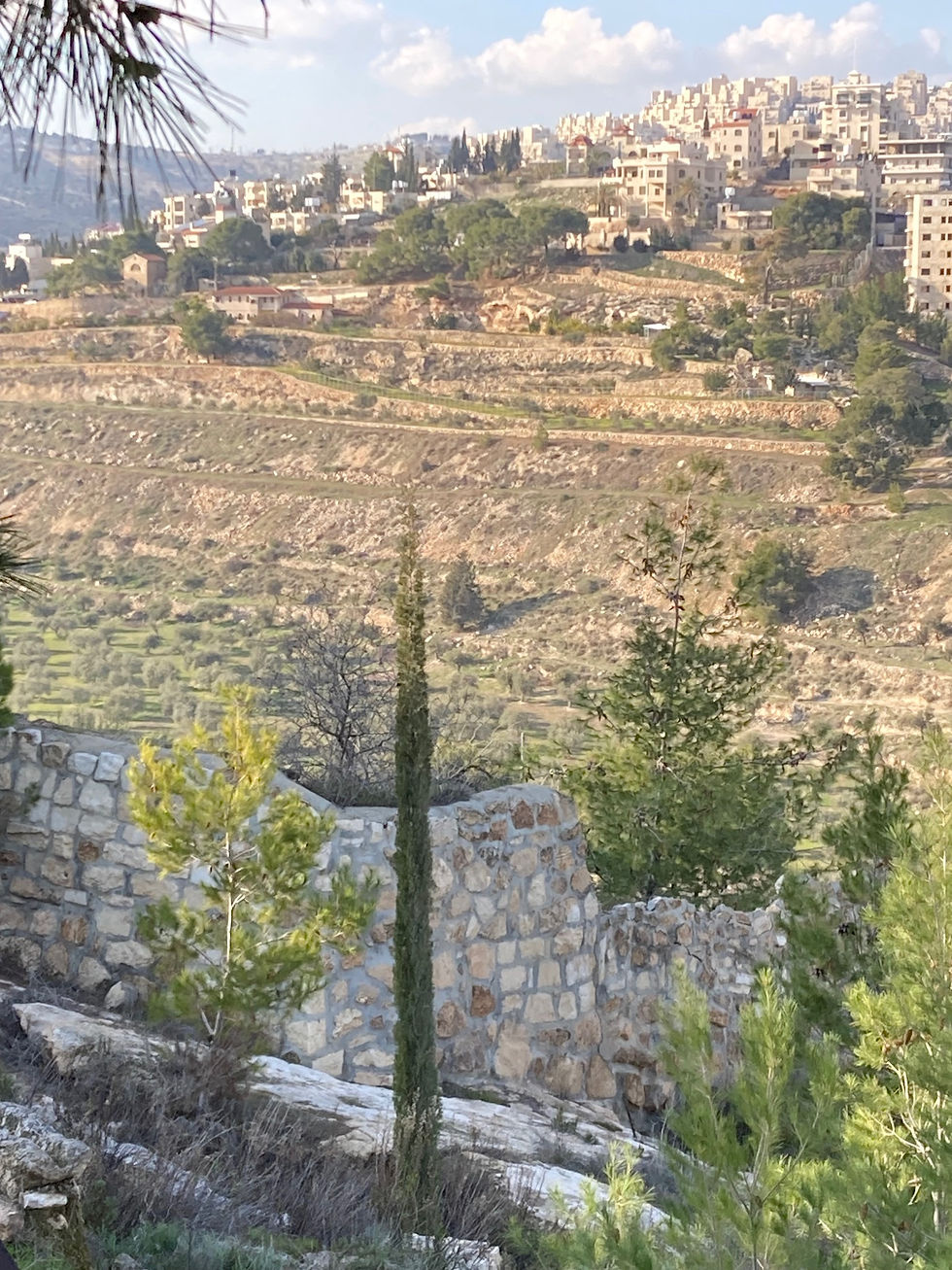Israel and Palestinian Territories
- Alan Donaldson

- Mar 12, 2023
- 3 min read
Updated: Mar 13, 2023

I recently had the privilege of travelling with EBF President Stefan Gisiger to Israel and the Palestinian Territories. Our trip was scheduled to allow us to attend the Assembly of the Association of Baptist Churches in Israel (ABC) and to meet with the Executive Committee of the Council of Local Evangelical Churches in the Holy Land, in total a group of 32 churches.
Partnership and family relationships are key to these exciting ministries yet the inequality of opportunity is clear, especially when families, including married couples, are divided by the wall or fence that traverses the land.
Christianity, Judaism and Islam coexist in the region and result in an often-charged atmosphere of tension; we experienced this as we drove to Jerusalem on a day of demonstration against the current Israeli government. We took refuge from the tension behind the wall in Bethlehem and Ramallah, appreciating the sanctuary on offer.

Churches in the region look similar to those you find across the world. Characteristic of Baptist worship was the exuberant praise and the joy of fellowship. Uncharacteristic was the lack of a particular day chosen for Christian worship. We experienced main church gatherings each day of our visit from Thursday to Tuesday.
Despite the challenges Christians face in the Holy Land, as a minority group they still have a clear impact on their local communities. Some churches offered food banks, homework clubs for children and gave homes to orphans. The Baptist School in Nazareth, attended by 1,100 local children from Christian and Muslim families, seeks to help children and young people grow into mature peacemaking citizens in the region. Baptists in the Nazareth area are key contributors to the Nazareth Village which welcomes 100,000 visitors a year to hear the words of Jesus spoken in the town where he grew up. The Nazareth Evangelical College is staffed by outstanding scholars and teachers; it prepares many pastors to serve in the region. Its degrees are offered through Bethlehem Bible College in the Palestinian Territories, another example of the partnership we observed.

The Council and Association seek to support youth ministry in the region but face the challenge that rarely are Palestinian young people allowed to visit their sisters and brothers in Christ in Israel. Indeed, the draw for these Christian Arab young people is emigration rather than remaining in a context where they feel like 2nd class citizens and face so many difficulties. Luna Matar from Cana Baptist Church in Galilee spoke of her desire to invest in this generation and is expecting great things from them, despite the many challenges. The young people of ABC began a 40 day fast from social media during our visit, a sign of the desire of this generation to draw close to God and be used by him.
The trip was organised by Development Officer Bader Mansour of ABC and by President Munir Kakish of the Council of Evangelical Churches who pastors a church in Israel as well as one in the Palestinian Territories. A regular prayer request was for land to build churches on. The desire is strong to pass on to the next generation a secure spiritual home in which to worship and from which to serve.
They also extend a warm invitation to our EBF family to come and visit with them. They are wonderful hosts and offer great insight to their homeland past, present and future.



Comments